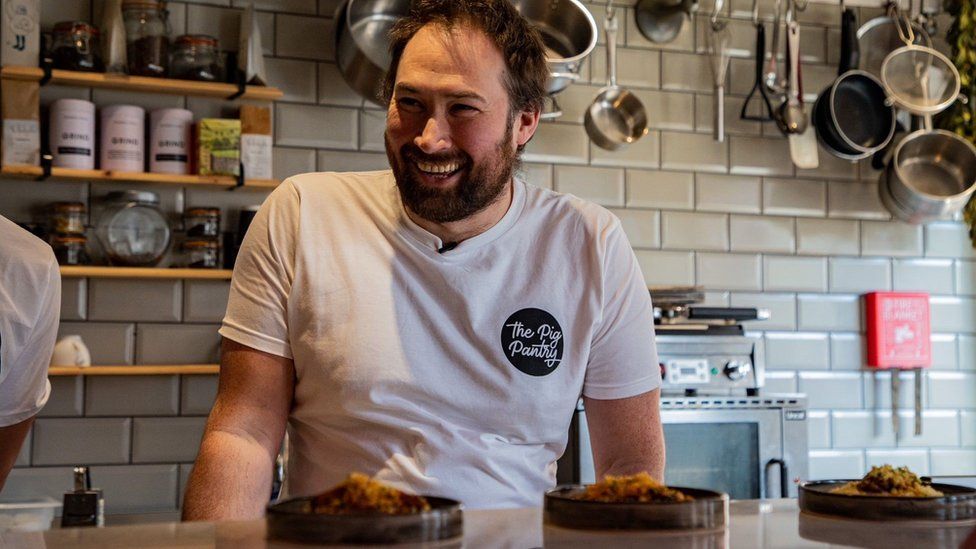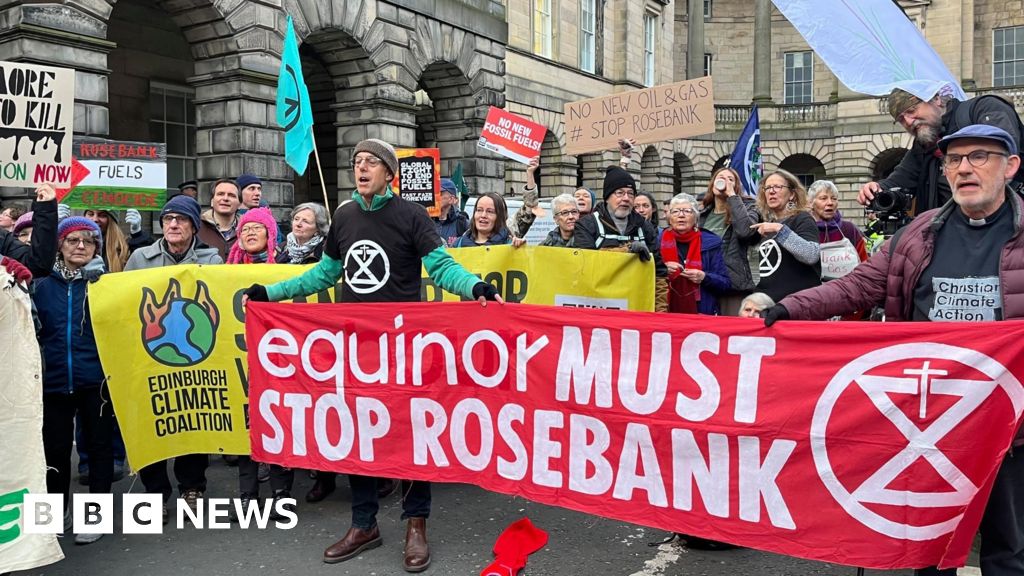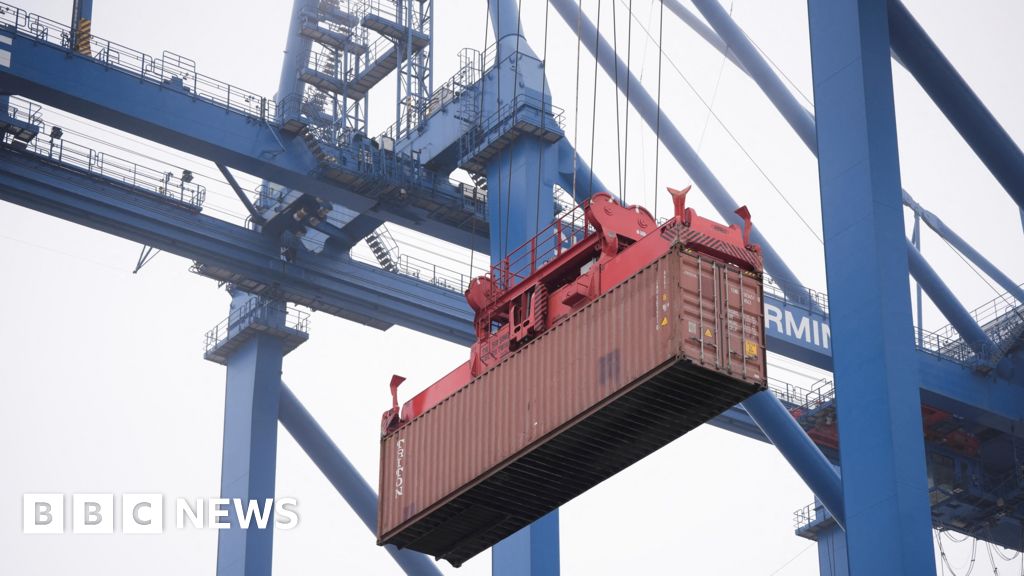ARTICLE AD BOX
 Image source, The Pig and Whistle
Image source, The Pig and Whistle
Chef James Allcock says loan repayments are costing more than ingredients for his food business
By Esyllt Carr
Business reporter, BBC News
James Allcock, chef and owner of The Pig and Whistle restaurant in Beverley took out a £45,000 Bounce Back Loan at the height of the Covid pandemic.
He says repaying it has become a big drag on the business, costing "more than I spend on fish a month."
The Federation for Small Businesses (FSB) says firms should be given more flexibility to pay back pandemic loans, with higher debts hampering investment.
The government said repayment holidays were an option.
A spokesperson for the government added that Pay As You Grow measures gave borrowers with Bounce Back Loans the option to repay their loan over a period of up to ten years.
The FSB's chairman Martin McTague says he would like those options to be extended to those with Coronavirus Business Interruption Loans too.
He said repayment levels for loans were "strong", and that defaults were "lower than previously estimated".
But, Mr McTague warned that, "many small firms are being held back from growth and investment due to their higher debt levels."
James Allcock has already extended the term of his loan, and he paused repayments over Christmas.
He says that after a "disastrous" May, he's taken the last available option and switched to interest-only repayments for 6 months.
After that, he says, there will be "nowhere to turn."
With higher costs, staff shortages and customers with less money to spend, Mr Allcock says this period is even harder than the pandemic.
"I don't take any more money than I did 4 years ago, but it's costing a lot more to do it," he says.
The latest government figures show that just over 6% of Bounce Back Loans are in arrears, with around two thirds being paid back on schedule. However, nearly a third of borrowers have used at least one of the options available to spread out repayments.
"There's been no bounce back"
But that is not possible for those who took out a Coronavirus Business Interruption Loan (CBIL), like Collette Osborne who runs Hairven, a salon in Nottingham.
Image source, Collette Osborne
Image caption,Collette Osborne and Rishi Sunak
She borrowed £250,000 in 2020 when lockdown stopped her trading.
She estimates her losses from the pandemic to be around £700,000.
CBILs were 80% backed by government, had low interest rates and did not have to be repaid for the first year. Collette was given six years to pay the money back.
"I expected to be able to trade my way out of this," she said, but extended Covid restrictions, an unregulated industry and a lack of consumer confidence has made it a struggle.
"There's been no bounce back," she says. "I can't take people on, I can't train people, I can't invest."
Collette said she raised her concerns with Rishi Sunak when he visited her salon as chancellor last June.
"He promised to see through all my concerns - I'd like another meeting with him," she says.
Given the huge impact of the pandemic on the hair and beauty industry, Collette would like to see more flexibility when it comes to paying back the debt.
"It should be repaid on profits - to give us a chance to grow," she says.
"The wolves are at the door," she adds, "nobody gives you any space."
The Money Advice Trust, who run a helpline for businesses struggling with debt, says data from a survey of more than 500 of their clients earlier this year found that over a third of them had a Bounce Back Loan.
"Of the people we help at Business Debtline, many are still dealing with the financial fall out of Covid-19," said their chief executive Joanna Elson.
"The current crisis has compounded these financial pressures further - and so it has never been more important to make sure small business owners access the free advice they need," she added.
Some are trying other ways to get themselves out of debt.
Dave Hughes who runs the not-for-profit Hot Box music venue and community centre in Chelmsford has launched a crowdfunding campaign to try and save his business, after finding himself unable to make repayments on his £50,000 Bounce Back Loan.
Artists including Fat Boy Slim and Frank Turner have agreed to play gigs for free at the venue in order to help it survive.
"Before the pandemic, we were a debt free business," he says, "I'd never owned a credit card."
Now, loans and accumulated unpaid rent and bills mean he has £90,000 of debt.
"Trading is back up to where it was before Covid, and even better," he says, "but costs have rocketed."
Mr Hughes says he has not paid himself since last August, and is being pursued by those companies he owes money to.
"I didn't bring this on myself," he says, "but they chase you like you're a criminal."

 1 year ago
27
1 year ago
27








 English (US)
English (US)